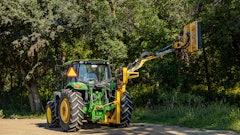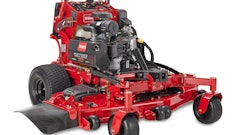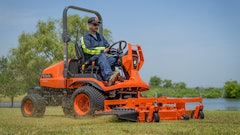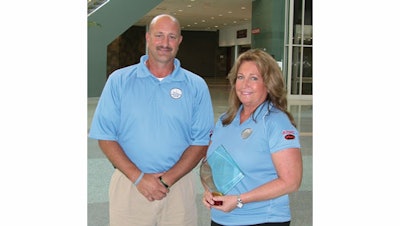
Kevin Payne’s design/build company began as a dream in 1982. In the early days, when revenue was driven by maintenance, the smaller landscaping projects the company did perform were in the $300 to $5,000 ballpark. Today they’re in the $8,000 to $15,000 range—and there are lots of them.
TenderCare Lawn & Landscape in Derby, KS, prides itself on having blossomed into a truly full-service company, offering landscaping, irrigation, lawn care, night lighting, pool installation, and custom outdoor structures such as pool houses and outdoor kitchens. The multi-million-dollar company employs three full-time designers. And it still runs a sizable maintenance division that accounts for roughly 20% of the company’s annual revenue.
For TenderCare, managing sales growth—39% since 2004 for instance—has been as much about knowing when not to expand as it has been about knowing when you should. “Growth has been controlled by understanding that it’s not worth adding services or sales beyond your potential,” Payne says. “It doesn’t make sense to add more overhead and perform sub-par service. While we have watched several companies add equipment, trucks and employees in an effort to grow rapidly, most ended up going out of business or having to drastically downsize. Growth has to be monitored closely.”
IT HELPS TO HAVE THE BACKGROUND
In order to grow profitably, Payne reminds, you need 1) the right employees, 2) the ability to properly service, and 3) the ability to track jobs and maintain profit levels. To grow through diversification, you also need a solid understanding of the jobs you’ll be performing.
“Before I started my company in 1982, my background at a local nursery was helpful in the fact that I learned to ball and burlap trees and shrubs of numerous varieties,” Payne relates. “I learned proper digging practices, along with how different root structures grew. Plus, pruning and shearing over 100 varieties of trees and shrubs several times a year helped me gain a real knowledge of plants and their growth habits.”
Payne says this hands-on knowledge gave TenderCare a distinct advantage over many companies that tried to evolve from basic lawn maintenance services. “If we don’t have the knowledge and experienced employees to perform a service, we don’t jump into it,” he adds.
For the first few years of its existence, TenderCare operated as a small landscape, pruning and maintenance company. Customers started asking if they could spray for weeds, fertilize and work on their irrigation systems.
Already having knowledge of chemicals through his experience at the nursery, Payne immediately decided to take the state’s application test and become certified. “Our main concern as a maintenance company was to have the healthiest, best-manicured lawns in the neighborhood, so adding lawn care made perfect sense,” Payne says.
It took a little longer—six or seven years to be exact—for TenderCare to branch into irrigation. “We didn’t feel like we were ready to start that service earlier due to spreading our staff too thin and possibly compromising our core services,” Payne points out. “We had used a few companies to help us do irrigation system repairs, and subcontracted a few new installs. But we were often disappointed in the timing as well as the service we were getting.”
TenderCare aggressively searched for an irrigation manager who not only had the knowledge of all aspects of repair and installation, but could see the vision that Payne expected. “We found a person who owned a small irrigation company but was struggling,” Payne says. “We not only offered him a job, but purchased his accounts and equipment. We have since been able to service our clients to our required expectations and have grown the irrigation department nicely.”
FULL SERVICE, FULL BENEFITS
Payne says becoming a full-service company has helped in many ways. Of course, TenderCare has gained access to more customers and additional opportunities for upsales. But there are plenty of other benefits as well.
Because the company is able to take a project from ground zero to completion, Payne says designers can ensure that driveways and sidewalks are incorporated into the overall theme and functionality of the project. The proper plantings are chosen, irrigation systems are designed for proper coverage, and maintenance concerns are well-thought-out. Other issues such as drainage, proper placement of water features, pools and shade structures are not only functional, but add to the overall aesthetics of the project.
“Being able to fully maintain the project becomes easier for our crews, and is a huge selling point for customers,” Payne points out. “There is no finger pointing as to which contractor did what. If there’s something wrong, we fix it—plain and simple.”
Just like with a stock portfolio, diversification can help you weather the ups and downs of changing market conditions. TenderCare has certainly found that out in the past year. The area experienced a considerable amount of moisture in 2007, resulting in stagnant irrigation repair sales. Due to the wet weather, landscaping was also relatively flat. But maintenance and lawn care were strong. “We rarely see two or more departments that are weak in a particular year,” Payne says.
Being highly diversified has also allowed TenderCare to attract skilled employees because it’s easier to keep them fully employed year-round. Crews are cross-trained so they can help out another department that is particularly busy. “Last year irrigation repair techs were helping out with pruning, lighting and drainage work,” Payne recalls.
The biggest benefit of being diversified, naturally, has been the opportunity for upsales. As Payne points out, each of TenderCare’s departments has helped the others prosper.
“We often get a call for a landscaping design and have the customer view a company DVD or visit our website,” Payne tells. “Many tell us they were unaware we could do so many things. We end up installing a cook center and large flower pots along with the landscape.”
TenderCare Lawn & Landscape provides extensive training to salespeople and managers on how to effectively up-sell additional services to existing customers. “This can be so much easier than trying to find new customers,” Payne says.
FEED THE MONSTER
Nonetheless, growing a company like Payne and his staff have done definitely requires some aggressive marketing. Word-of-mouth helped get the business moving, but eventually had to be supplemented with both traditional and non-traditional advertising.
“As we began to really grow, we found that to maintain our current expectations and sustain our growth, we needed to attract new customers from outlying neighborhoods and areas,” Payne says. “As we often discuss in our weekly staff meetings, a business evolves into a monster—and you must constantly feed that monster to survive.”
Payne says TenderCare has developed a cutting edge use of technology to deliver information to current customers and potential clients. “Our belief is that customers need to visualize the beauty we create,” Payne explains. “The use of television commercials and the new digital billboards offer a great resource to show off many of our unique services and projects.”
TenderCare also has a very informative website, featuring seasonal information and advice, along with featured projects and award-winning designs. A special nursery section allows consumers to learn more about the popular plants TenderCare designers incorporate into their plans.
Similarly, a DVD has been developed to allow prospective customers to view any of the services TenderCare offers. There’s even a customer testimonial chapter. “Most clients tell us they watch the DVD from start to finish and end up sharing it with a friend,” Payne says.
A four-page newsletter, sent via email and/or regular mail, helps customers learn more about TenderCare staff members. The newsletter, published once in the spring and again in the fall, also offers design tips and seasonal information that reminds customers of what issues may need to be taken care of. Special offers and award-winning landscapes are also highlighted.
Payne says the bi-annual newsletter has been an effective marketing tool because it helps reinforce the personality of TenderCare Lawn & Landscape. The same can be said for community work.
“Many of our employees grew up in this town, just as I have, so we have a real sense of community pride,” Payne says. “We’ve donated several hours of labor to help with various projects.”
A current project is the design and installation of landscaping and irrigation for a home being built in an upscale housing addition where all proceeds go toward the Susan G. Komen Race for the Cure Foundation for breast cancer. This “green” home incorporates environmentally friendly products throughout, including the landscape and irrigation system.
TURNING CALORIES INTO MUSCLE
When you’re feeding your business new customers, you also need a plan to feed it more staff. “I’ve always looked for people who share the same vision I do, which is quality before quantity,” Payne says.
As TenderCare grew, Payne says he had to offer prospective employees a better experience in order to attract them. TenderCare began offering a 401k plan, paid vacations and holidays, health/dental insurance and accident insurance. Most importantly, “We worked hard to create a great working environment that offered a high level of job satisfaction,” Payne points out.
A great working environment requires continuous, open communication. Communication meetings are held each Friday with all managers. Pressing issues are discussed in an open forum in an effort to identify the best solutions. Payne creates an agenda the day before, allowing managers time to add any issues they’d like to also discuss.
“One of the strongest systems TenderCare has is daily communication between all employees,” Payne adds. “Designers communicate with field managers to help create more realistic designs. Field managers communicate with field employees to help with job efficiency. The list goes on. Everyone at TenderCare is both a teacher and a student.”
Shared Vision
It was Kevin Payne’s dream to own a respected design/build company serving the community he grew up in. As TenderCare Lawn & Landscape grew, it was important for new employees to share that same vision. That’s why Payne decided to hire his own full-time designers.
“When it became evident that we were subcontracting a large amount of money to outside designers, we decided to hire our own full-time designer who could see our vision and work within our deadlines,” Payne says. Now TenderCare has three designers, two of whom are landscape architects.
“They design, meet with clients, sell jobs and make sure all plans and material are given to the landscape coordinator,” Payne explains. “They’re also available to answer questions should changes be needed. Sometimes they’ll even go out to help with certain projects, mainly assisting with things like water features. They want to ensure that their vision is carried out.”
TenderCare Lawn & Landscape
Derby, KS
tendercarelandscape.com
Founded: 1982
Owner: Kevin Payne
Employees: 23 year round, 50 peak season
Sales Mix: 35% installation, 25% lawn care, 20% maintenance, 10% irrigation, 10% other including snow removal
Customer Mix: 75% residential, 25% commercial

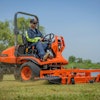
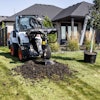

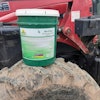
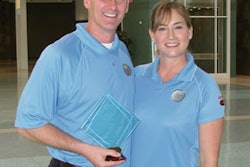
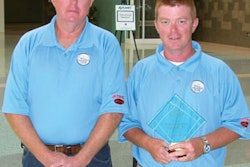
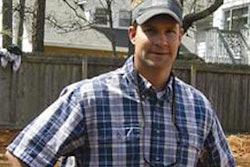
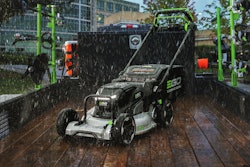
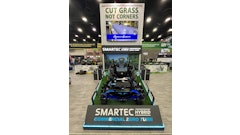

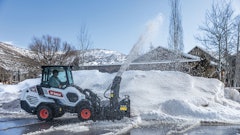
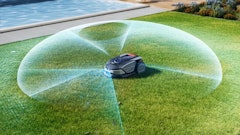
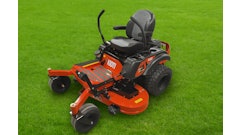
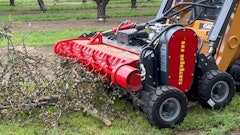


![U8kj71gt 720[1]](https://img.greenindustrypros.com/mindful/acbm/workspaces/default/uploads/2025/10/u8kj71gt-7201.8OyDyc124u.jpg?ar=16%3A9&auto=format%2Ccompress&fit=crop&h=135&q=70&w=240)
